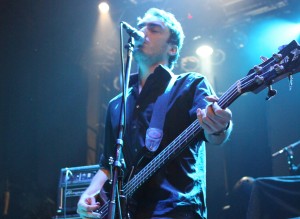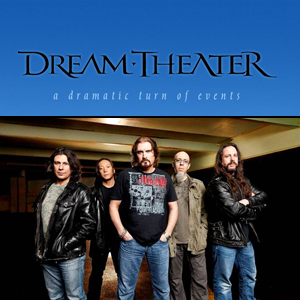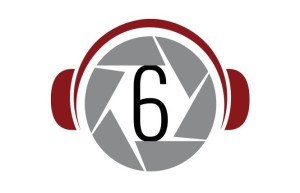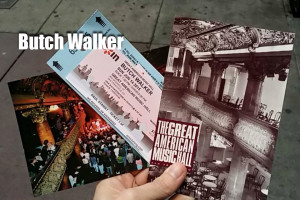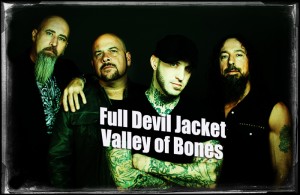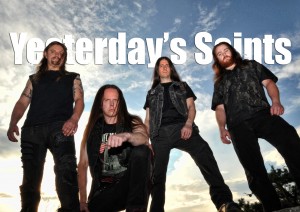A Conversation With Our Lady Peace
19 min readLast week I drove up to The Viper Room in Hollywood to talk to Duncan Coutts (Bass) and Jeremy Taggart (Drums) of Our Lady Peace. I was hoping to get about ten minutes of good face time with the two of them, and praying that I could peek just bit below the surface of this amazing band. What I got was over half an hour of greatness. Even before our camera was rolling, these guys talked with me like an old friend, as we discussed the pros and cons of ordering the Hindu meal on international flights. (The consensus? Go Kosher!) Hope you enjoy what we’ve captured.
Circle Six Magazine: I saw you at The Glass House, 1997 for the Clumsy tour.
Duncan Coutts: Pomona
Jeremy Taggart: Yeah, we’ve played there since then too, actually
C6M: Yes. And it was a hell of a show. Black Lab opened I think.
JT: Black Lab went and ran into the corner.
DC: Are those the guys that you got with the stink bomb?
JT: That’s them. I made ‘em almost break up on that tour. (laughs) I was messing with them on all fronts. It was absolute degradation.
C6M: You broke ’em in the hard way?
JT: Oh, well, no. It was just, they were all fightin’ all the time so I was just making them fight even more I guess. Fisticuffs.
DC: Springfield, Missouri…didn’t you have them chasing each other around the theater? Around the soundboard?
JT: (laughing, nodding, makes a ‘round’ motion) I put a stink bomb under the bass pedal so I didn’t have to detonate it. And he stepped, ya know and they’re playing and all of a sudden they stop and are like, “F—‘s sakes man, what is that? Aw, man!” And all of a sudden they’re fighting and one of the guys is like, “F—ing stink bomb man!” And then one of ‘em says, “It’s Taggart. Where the hell is he at?” And they didn’t see me and then all of a sudden one guy was like, “It was you!” and then they just started arguing about something else and someone called someone an asshole and then they got mad about that and then all of a sudden they’re chasing each other around the whole place. I was just watching through a little crack in the balcony.
C6M: So The Rolling Stones. How intimidating is that?
JT: We’ve done two of them already.
C6M: Oh, you played with them earlier?
JT: Yeah, and we haven’t met them yet.
C6M: Really?
JT: And we’ve got some family members that wanna come to the show. They [The Rolling Stones] are charging us $200 to anything…they don’t even have guest lists.
DC: Yeah, we have a 30 person guest list. But we just found out that the 30 person guest list is they reserve you 30 tickets that you can buy for 200 Canadian dollars ($155 US).
JT: One show. 75,000 people are going to be at this show. That’s what…$15 million dollars or something like that. We just want, ya know, maybe 10 tickets for some friends. (Imitating Mick Jagger) “I’m sorry lads. That’s not going to happen on this tour.”
C6M: Were they at least good seats?
JT: They’re in the middle! You can’t even see Mick!
DC: It’ll be cool. The coolest thing about playing with the Stones in the past…well, we didn’t meet them so that wasn’t so cool but the coolest thing was that the guitar tech let us come up and look at Keith’s tweed amps. The old, old, old school (I forget what year it is) feather-tweed amps, first year it was made and the serial number 2 and serial number 3.
C6M: Who’s got 1? The guy that made it?
JT: Clapton maybe?
DC: I don’t know.
JT: They were an amazing band. One of the best of all time. I mean, I loved a lot of their records, so it’s always great to be in the kind of company of that, but it’s a bummer when they make you pay to get in, ya know, to play.
C6M: I guess with those guys, you’re the Black Lab for them maybe.
JT: Yeah, they’re gonna make us fight. Make us break up.
DC: We’re not even the Black Lab. JT: (Imitating Mick Jagger) “We’re going to pay you a fair salary. But you’re not getting any tickets.”
C6M: Healthy and Paranoid Times – you had some troubles recording that, according to your bio, to put it lightly.
JT: A couple little fights.
DC: It’s the first time that we have afforded ourselves perspective on anything that we’ve done. Usually, we go in and we record and then you have management and a record company busting down your door to put it out immediately and this time we would get together for three weeks, four weeks and write and then go record for a month, two months and then take anywhere from three weeks to three and a half, four months off and then we just did it in blocks like that. And each time we took some more time off and listen back, get away from music and get a real perspective on it. And it was really selfish on our part and it was really great to be in a position to be able to do that And along the way there were a lot of disagreements and there were a lot of fights and precarious times, not knowing if there was gonna be a band or not knowing if there was gonna be a producer – whether he was fired or whether he quit or all of that kind of stuff. So when we made Gravity, it was a new relationship with Bob and everyone was really excited and we just did it. And this time we just sort of got into it a lot deeper and learned a lot more about each other and I think the music shows it.
JT: It was a great experience, ya know. It was very long and it was tumultuous and couldn’t have been any worse and there was adversity at certain points, but, at the end of it, what this album is is resolution of all the strife and problems. This record is definitely relieving and it’s very therapeutic for us to listen to after all that we went through.
C6M: It seems like there’s a connection – U2 with Achtung Baby went through a lot of troubles during that, almost broke up several times. Do you see this as sort of a new evolution for your career in the same way that was for them?
JT: Yeah, well, in terms of a band having their problems…yeah. I think the bottom line is for us when we knew in the beginning that there were certain songs that were really good and exactly what we wanted and that kind of carried us through all the problems ya know? The problem wasn’t necessarily that we didn’t like what we had – it was more we liked what we had but how long is it gonna take before we had a whole album we really loved, like these songs. And we’d do it one by one. It seemed that after about six or seven it was just very, like you couldn’t see the light at the end of the tunnel so you’d start freaking out like, “Is this gonna happen?”, or, “Is this it?” And by the end of the day our cooler heads would prevail and we would always get through it.
DC: If you’re talking about it as a rebirth in comparison to how Achtung Baby was a rebirth then yeah, I would say it was similar for us.
JT: Nobody’s dressing up like chicks though, for the video (laughing). I’ll tell ya that much!
C6M: No, that ain’t gonna happen huh?
DC: And I’m not gonna be naked on the cover.
JT: Yeah – exactly.
C6M: (laughing) Who’s the Adam in the band then?
DC: (shrugs and laughs)
JT: We don’t need to see the berries, the bass player berries.
C6M: Raine said that you wanted to “bring as much artistry as possible back into your music.” Where along the way did you feel like you lost that?
DC: I don’t know that we ever consciously thought that we lost the artistry. I think that there are often times that outside influences try to push you in certain ways. And we just had to get back to the basics. For me, this record, even though it’s weird coming from me because I just joined the band right after Naveed but I knew the guys and I was aware of what they went through making Naveed…to me it sort of mirrors that because there was a naivety and a carelessness about the way that we went about making that record and this record. And it was in the sense that you don’t have pressures, you don’t have timelines. And I think when you sort of clear yourself from all that then you can bring artistry into the music and you can just let it be pure. It doesn’t get tainted.
JT: I think it was the bottom line for us, looking back on all that stuff, I mean, we don’t criticize our past, it’s just we were kind of….we didn’t know 100% what we were doing and I think you can’t expect that, you know? So you can’t look down upon it. We just know more now and we’re 100% confident when we make decisions. And that’s all based just on the musical front, ya know? From writing songs together and finding out dynamics and who works together well, and if we can get through problems and if we can write songs in a room just with nothing. You know, nobody has to go out and do a song just by themselves and come back. This whole record was a complete change in our format.
C6M: Very collaborative…
JT: Yeah but it was for the right reasons. It wasn’t like “It has to be democratic just because of this”, you know? It was like “Let’s get these songs however they come” but we all seemed to really want it enough as individuals together.
C6M: Well, it seems like, even sonic-wise, it’s a more sonically mature album than Gravity. Is part of that Steve coming into his own with this one?
JT: It’s part of that, it’s part of Steve for sure. It’s part of having Joel play on the record, a guest guitar player who is great. I mean, it’s a part of us maturing as musicians and then taking out all the slickness of sound and production. Just getting a really live off-the-floor kind of feel. Those are the breaking down and the building up stuff that we did for this record to make it sound really authentic – that it would sound almost like it does live.
C6M: Well, it definitely does. When listening to it, I don’t know if you’re familiar with Dishwalla’s third release Opaline. Amazing record for a band where they just kind of came together, very organic feel. And listening to Healthy and Paranoid Times, that’s the feeling I got. It’s quickly becoming one of my favorites. Clumsy is my favorite because that’s the one where I was kind of introduced to the band. And I love them all but this one is just – there’s a passion there and an urgency that I hear a lot.
DC: Yeah, well, we just had a, I don’t know if it’s a mantra or just a rule…it was “We’ll just write as many songs as we can and those that make the hairs on the back of your next stand up…then those are the ones that make it. And until they all do that, then keep working.”
JT: We said, “Record all the spooks” (laughing).
DC: Record all the spooks (laughing).
C6M: Bob Rock. Some criticized you for using him on Gravity and making the change like that.
JT: People are gonna criticize anything, ya know? People are gonna criticize any change that you make because people think that because they’re in love with the band then they can make decisions for the band for some reason.
C6M: Just read the message boards?
JT: Yeah. And our fans, they realize…and I hope to God they realize…that we’re one of those bands that’s gonna happen where we’re gonna make decisions that are gonna be a 180 from the last record. And we hope they’ll stick around, but the whole point is for us to make music together and not care about that kind of stuff.
DC: And we needed to grow as a band. And in order to grow as a band we needed to work with someone different then Arnold, the producer of our first four records. And that wasn’t…well, yeah, I guess in a way it was a selfish thing, but it’s just a natural course of life.
JT: Hey, that’s the way it is.
C6M: You’re allowed to make those decisions being the band.
JT: You should. You gotta collaborate in life to make it work. You have to feel rejuvenated at certain points. It’s not like we’re gonna go “Well, you know what, we need a new bass and drum on the new record.” Or “We need a new voice.” I mean, those things aren’t gonna happen. You can’t do that. But you can have a different perspective like another producer or a different engineer, depending on what you’re going for. That’s what music is supposed to be.
C6M: War Child has obviously had an impact on this record. How do you make the transition and – did you guys go to Sudan with Raine?
JT: No, Raine went to Darfur and he also went to Iraq a couple of years previous to that. He’s very dedicated in War Child and he made two documentaries and his idea is to hopefully aid and that these places that he’s visited are going to get better and they’re gonna get plumbing and be able to get back on their own feet so that he can make another documentary so that he can show the difference in that little amount of time, hopefully. But yeah, he’s very dedicated to that and we obviously back it. I mean, how can you not want to have a child in a third world country have an opportunity to know what’s going on, you know. Give ‘em a computer so they can go on the internet and talk to other people in other camps and other towns and figure out a community so we can maybe make it work better. That’s the number one thing – to get that ball starting to roll. War Child, that’s what they want to do.
C6M: With his experiences, and obviously that rubbing off on you guys. Is it hard to make that transition back into being a rock star…after viewing the type of genocide that goes on there?
JT: I don’t think that’s a transition. I think that’s just a human reaction. I mean, we’re people and we’re in a band. So people call you a rock band and if you’re the lead singer then you’re called a rock star. And if you go somewhere and do something and speak your mind about something your passionate about for some reason that gets twisted into something he’s not allowed to do. And I think anybody right on down to a bus stop or a patrol-crossing person, somebody who works in a gas station – if they have an opinion, speak it, ya know? It’s all you can do and if you have an opportunity to see the other side of the story, or just to see what happened, more power to that person, you know?
C6M: Well, and I would think it would give you a stronger purpose as well. I mean, even on your website you have a section for links there on there to a lot of great organizations.
DC: Yeah. You know what it is, is he was affected greatly as a human being. It’s changed him forever as a human being. I heard in an interview that we all did together the other day, he said “I had real doubts about coming back here from Darfur.” There was a big part of him that wanted to stay and become an NGO. But that aside, that changes him as a person and we as a band only operate with everyone’s input. So obviously it affects us. And life affects us. It affects lyrically, it affects the music and it affects it right on down because you know, music comes from your soul. It’s the reason we get out of bed in the morning. And when you change the human, your music’s gonna change.
JT: Yeah. I mean, sometimes listening to a record can change your music, ya know? I have a friend who just came back from Kenya two weeks ago. I haven’t been able to talk to him much but he hasn’t been the same since. Like he’s really having a hard time – and Raine said this himself, it’s not the going there and what you see that affects you. It’s the coming back here and seeing how great everything is here and how great everything can be.
DC: It’s a culture shock how much everything is taken for granted.
JT: That’s what really affects you. So it’s very common. Obviously it’s gonna change your life – unless you’re completely ignorant and didn’t see anything or didn’t want to see anything.
C6M: Right, which a lot of people do.
JT: Well, I don’t know too many people that have gone over there themselves and come back not thinking that it’s a lot tougher to grow up there then here, ya know?
C6M: Well, they’re called politicians here in America (laughing)
JT: Well, yeah and that’s a whole other problem. It’s not our problem, sadly.
C6M: Well, kind of going off that – “Wipe That Smile Off Your Face,” who’s it directed to?
DC: Uh, I didn’t write those lyrics so…
C6M: C’mon, Duncan…
JT: Well, I think if you look at that song as a metaphor, it can be any politician that has done something where they’ve hurt the little person underneath them. Not even the little person, the big people. Um, it could be anybody, ya know?
DC: It doesn’t even necessarily have to be about a politician.
JT: Yeah, it’s just anybody that is undermining what you’re doing and is doing something knowing exactly what they’re doing as it’s happening and they’re waving to you everyday like “no problem.” It could be a guy in your neighborhood that is like a sick person taking advantage of you. It happens all over the place. I mean you can direct it right to the top or you can take it right next door, you know?
C6M: Talking about how coming back is actually harder with the culture shock, your bio talks about the religious right. And some of your lyrics, Raine has taken a very fair swipe at the religious right, I believe. Do you think politics corrupt faith? Or is it the other way around?
JT: Well, for faith and politics to come into a problem together is weird for me. It’s like that should never happen, you know? Faith is something that is inside of you. It really helps your life. Why should politics have a problem…I can understand that organized religious factions around the world colliding is a very big problem, you know? For how linked we are, for how easy it is for everybody to speak to each other – the global village they say. There’s a lot of dividing going on in a lot of different societies and cultures and people. And genocide still exists. I mean a lot of these things are crazy to think about.
DC: It’s like, you know, regardless as to whether, as you said faith affects politics or vice versa – it’s really about intolerance. And you can’t demonize one without the other. And it really is just about human intolerance. Anyone who is fanatical – be it a religious person, be it a right-wing politician, be it a left-wing politician – if they don’t want to hear the other side, if they don’t want to look that other person in the eye and talk about the differences and try and find a way to get through it then I don’t think we have a lot of time for that.
C6M: Good words. A little less heavy…how’d you guys get connected with Ray Kurzweil?
DC: That was back in the day. Mike Turner, our old guitar player read that book and talked about the book and Raine read it and I read parts of it…
JT: It was towards the end of the recording actually. So I think it affected maybe 3 songs lyrically on the record with Raine. And we thought it was a good way to go with artwork and the idea of it really kind of made sense as a cohesive unit and all of a sudden people thought it was a concept record for some reason. I don’t get that at all. I could see Tommy, it makes sense. It’s not like there’s a reprise or anything but for some reason it was deemed as that. Yeah Ray, I didn’t even meet the guy. I’ve read a bit of the book
DC: We went out and met up with him. We contacted him and asked him to do some voices for the record and all the little bits in between. And then we went down and met him when we played it Boston. We went down to the Kurzweil headquarters and stuff like that, hung around…it was cool. An interesting cat.
C6M: Yeah, I read that book after listening to the album. It’s a trip.
JT: I still believe that Deep Blue was a conspiracy for IBM though. I really do believe that. Because he actually said during the match, “This is crazy. I’m doing things and it’s reacting,” like a really tough move where he’s expecting them to take it. And there was this room back where they wouldn’t allow anybody in. They wouldn’t allow press, they wouldn’t allow any people and he demanded. He was like, “I wanna see who’s in that room,” and they’d never allow people who’d beat ‘em but there very possibly could’ve been four great chess players thinking and talking the same thing.
C6M: Just some little dude pushin’ buttons?
DC: I’d never heard that.
JT: Yeah it’s true. Ask Kasparov. I mean, he’s a little bit of a nut case, he’s a bit of a (motions the crazy sign with hands), but he was a good chess player. Just like Ty Cobb was an asshole, but he was a good baseball player.
C6M: Going back to when I saw you guys on the Clumsy tour – I told you guys there was a sense of urgency with that show…what does that sense of urgency look like to an Our Lady Peace that is almost 10 years older? Is it more defined? Have you guys turned more comfortable?
DC: I don’t know. It’s hard for us to comment on that I think. Because, ultimately, that’s someone’s perception in the audience.
C6M: Right. Is it a question I’ll have to answer tonight, after I see the show?
JT: Well, we definitely are better than we were 10 years ago, I mean, as musicians. I mean we’ve been working hard at it, so obviously we’re more mature.
DC: There’s still urgency, ya know?
JT: All that stuff is heightened. Everything is heightened. It’s not like parts of it are more mellow at all. It’s like when it’s big, it’s bigger than it was and when it’s small, it’s smaller than it was.
DC: This is the best it’s ever been.
C6M: You seem to me as intense but even more focused.
JT: Yeah. It’s fun to play. It’s great. And it shows I think. It’s honest I think. I mean we feel it.
DC: Yeah Raine really brought it I think – well, I think we both think lyrically with this record.
C6M: Yeah – amazing.
DC: I think we’re feeling pretty good about ourselves.
JT: God Damn it! (laughing)
C6M: Two more for ya…what’s your biggest disappointment?
JT: In what? Music? Or in general?
C6M: You tell me.
JT: That one night…that woman, she was beautiful. And I don’t know what happened, but I swear, I thought it was a woman and then it wasn’t. But I was locked up…and taped…
DC: I raced a semi-pro downhill, a mountain bike race, two years ago and…uh…forgot to wear a cup. And I crashed. That was a big disappointment.
C6M: (laughing) I imagine. From “Where Are You,” I’ll leave you with this, “Did Jesus get it right? Or is the devil behind the light?” Hell of a line. What do you think?
JT: Yeah, it’s a great line. But ya know, it’s a question. Who knows…
DC: Depends on who it is you’re asking, know what I mean? Depends on who you just come in contact with?
JT: Both of them ring true in a sense. Maybe not together, but who knows? I believe somebody’s messin’ around with somethin’ down there, I tell ya what!
C6M: Awesome. That does it for me. Guys thanks for your time.
JT: Thank you.
C6M: Lookin’ forward to the show tonight and I know it’ll be awesome.
